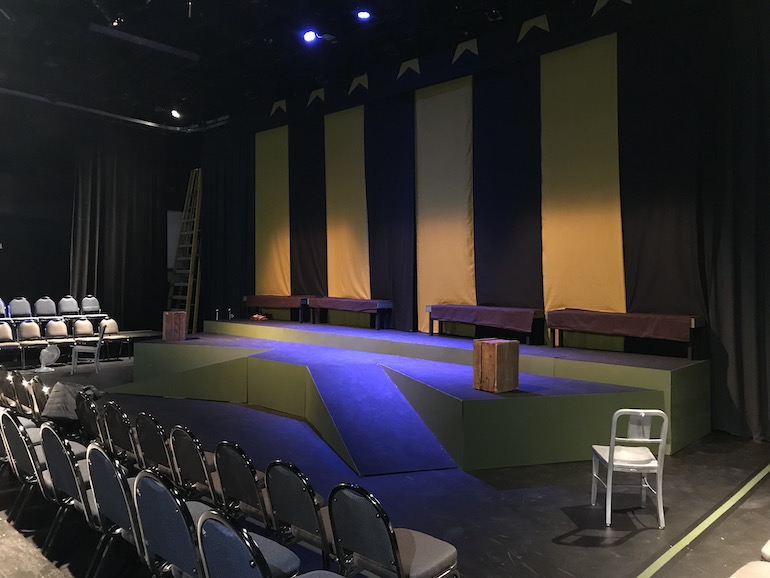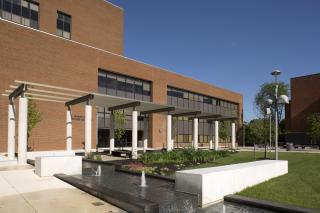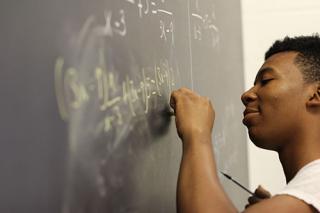Beyond the Classroom
Theatre Arts Program
Beyond the Classroom
Students participate in a myriad of co-curricular activities, including plays, concerts, art exhibits, workshops, presentations, competitions, tournaments, field trips, and conferences.
Student Collaborations
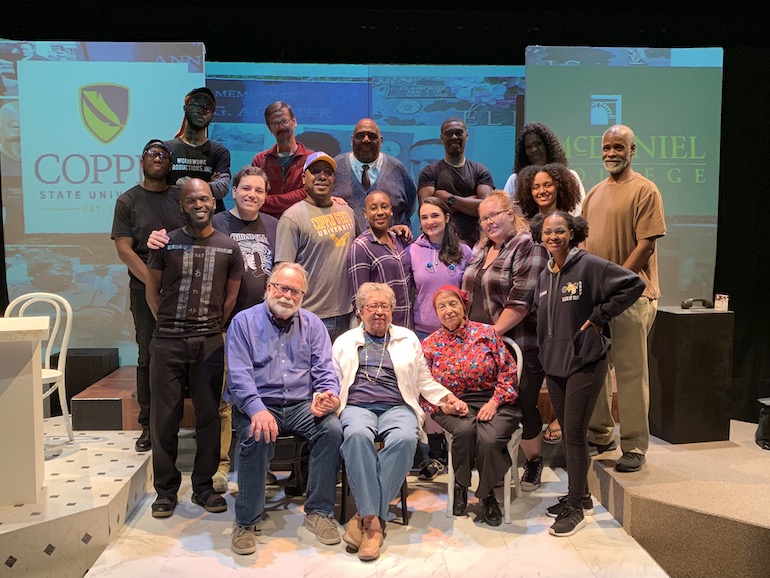
Our theatre students participate in a range of collaborative and community service projects with other student organizations and with other colleges and universities.
Recent collaborations include participation in Bowie State University’s annual Ten Minute Play Festival and a co-production on the show, Best of Enemies with McDaniel College.
Students also work with professional theatre practitioners as guest directors, actors, designers and playwrights (One Night Only, Harlem Song, Brother’s Keeper).
Internships
Our students have participated in various internship opportunities, such as:
- Daniel Carter, Ensemble Theatre of Houston, TX
- Louis Williams, III, Baltimore Shakespeare Factory
- Dorrian Wilson, Chesapeake Shakespeare Theatre
- Anthony Murcia-Santos, The Juilliard School
- Juan Ogando, Upright Citizens Brigade in NYC
- Kai Crosby-Singleton, Baltimore Center Stage
- Anthony Murcia-Santos, Baltimore Center Stage
Advanced Study Opportunities
Coppin State theatre students go on to advanced study, such as:
- Dorrian Wilson, MFA Acting Program, University of North Carolina at Chapel Hill
- Mama Rashida Foreman-Bey, MFA Community Arts Program, Mrayland Institute College of Art (MICA)
- Dorrian Wilson and Ryan Pratcher-Bey, the Kennedy Center
Broadway Field Trips
Students are encouraged to participate in our trips to professional productions. Past activities have included:
- The Color Purple. Students interviewed Natasha Williams, who played Sofia.
- Cat on A Hot Tin Roof. Students participated in a talk-back with cast member Anika Noni Rose, who played Maggie the Cat.
- Porgy and Bess. Students participated in a talk-back with cast members Natasha Williams (Mariah) and Norm Lewis (Porgy).
- Chicago. Students participated in a talk-back with cast members Brandy Norwood (Roxie), Natasha Williams and full cast.
- The Lion King. Students interviewed L. Steven Taylor who plays Mufasa.
- A Soldier’s Play
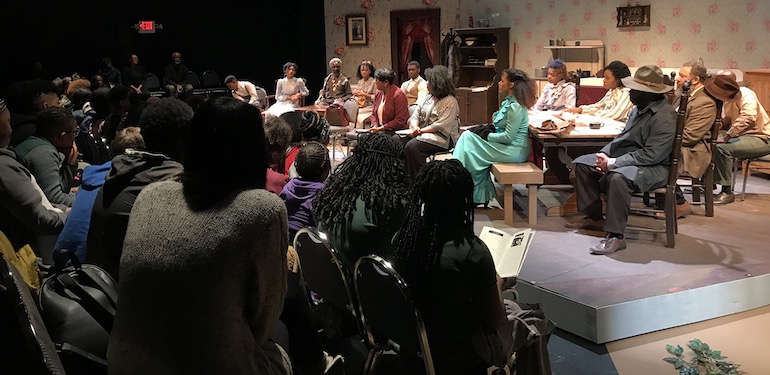
Engaging the Community
Our theatre students participate in a range of community activities, including:
- Summer theatre program
- Performances at Churches
- Audience talk-backs after all theatre performances
Regional and National Competitions
Coppin State theatre students participate in regional and national competitions, such as:
- NADSA
- KCACTF, one of the few HBCUs participating
- Forensics Tournaments
School Matinee Performances
- Middle and high school students
Participating in Public Showcases
- Acting I
- Acting II
- Acting III
- Unscripted: Improvisation for the Actor
- Oral Interpretation
- Directing
- We Heart Art Festival
Contact Us
The faculty provides nurturance through instruction, leadership, mentorship, advice, and interactive learning methods to engage students in theory, scholarship, practice, and community service. In addition to the staff and faculty listed below, we'd like to thank the following Adjunct Faculty team members too:
The Theatre Program is within the Department of Humanities in the College of Arts & Sciences, and Education.

